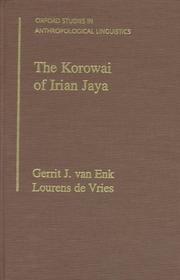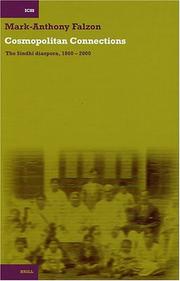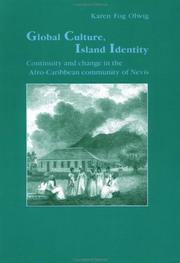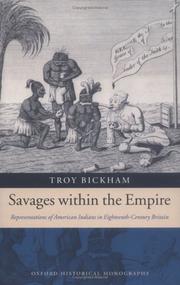| Listing 1 - 10 of 19 | << page >> |
Sort by
|
Book
ISBN: 9060454898 Year: 1986 Publisher: Baarn Hollandia
Abstract | Keywords | Export | Availability | Bookmark
 Loading...
Loading...Choose an application
- Reference Manager
- EndNote
- RefWorks (Direct export to RefWorks)
geschiedenis --- Griekenland --- Oudheid --- oudheid --- 397 <38> --- 397 <38> Primitieve volkeren. Nomaden. Rassen. Tribus: gewoontes. Gebruiken--Oud-Griekenland --- Primitieve volkeren. Nomaden. Rassen. Tribus: gewoontes. Gebruiken--Oud-Griekenland --- History of civilization --- Antiquity --- Greece

ISBN: 1280452749 1423759230 0195355636 1602561257 9781423759232 9781602561250 9786610452743 6610452741 0195105516 9780195105513 0197721842 Year: 1997 Volume: 9 Publisher: New York Oxford University Press
Abstract | Keywords | Export | Availability | Bookmark
 Loading...
Loading...Choose an application
- Reference Manager
- EndNote
- RefWorks (Direct export to RefWorks)
A compilation of basic linguistic and anthropological information about a tribe in Irian Jaya (the western half of New Guinea). Untouched by the modern world, they are threatened by the larger Indonesian society. This work systematically examines their language, oral literature and ethnography.
Korowai language --- Kolufaup language --- Papuan languages --- Social aspects. --- 397 <955> --- 397 <955> Primitieve volkeren. Nomaden. Rassen. Tribus: gewoontes. Gebruiken--Nieuw-Guinea--(voormalig Nederlands) --- Primitieve volkeren. Nomaden. Rassen. Tribus: gewoontes. Gebruiken--Nieuw-Guinea--(voormalig Nederlands) --- Social aspects --- Korowai language - Social aspects

ISBN: 1280915498 9786610915491 9047406036 1429408367 9781429408363 9789004140080 9004140085 9004140085 9781280915499 6610915490 9789047406037 Year: 2004 Publisher: Leiden ; Boston : Brill,
Abstract | Keywords | Export | Availability | Bookmark
 Loading...
Loading...Choose an application
- Reference Manager
- EndNote
- RefWorks (Direct export to RefWorks)
This volume looks at a diasporic community of Indian traders. It draws on anthropological field research as well as archival sources to portray a cosmopolitan group united by ties of kinship and community which are reproduced across space through processes such as the circulation of women and family visiting. These ties have their counterpart in the economic sphere which is characterised by sets of translocal trading linkages, credit relations, and a heightened knowledge of markets and a readiness to explore them. A model for the relation between mobility and commerce is thus explored. The book, which includes a number of maps and original photographs, is ground-breaking in that it uses the technique of 'multi-sited ethnography', in which data from different sites are juxtaposed into a broad synthesis. It is geared towards a broad audience.
Sindhi (South Asian people) --- Sindi (South Asian people) --- Sindhis --- Ethnology --- Migrations --- History --- Commerce --- 397 <540> --- 397 <540> Primitieve volkeren. Nomaden. Rassen. Tribus: gewoontes. Gebruiken--India --- Primitieve volkeren. Nomaden. Rassen. Tribus: gewoontes. Gebruiken--India
Book
ISBN: 9390591198 9789390591190 9789390512003 Year: 2021 Publisher: New Delhi
Abstract | Keywords | Export | Availability | Bookmark
 Loading...
Loading...Choose an application
- Reference Manager
- EndNote
- RefWorks (Direct export to RefWorks)
Bihar (India) --- Bihār (Inde : État) --- India. --- India --- Scheduled tribes --- Government policy. --- Social conditions. --- Economic conditions. --- Tribus spécifiées --- Politique gouvernementale. --- Conditions sociales. --- Conditions économiques.
Book
ISBN: 9024716225 9004286977 9789004286979 Year: 1974 Publisher: Brill
Abstract | Keywords | Export | Availability | Bookmark
 Loading...
Loading...Choose an application
- Reference Manager
- EndNote
- RefWorks (Direct export to RefWorks)
Regional and national history
Nalum (New Guinean people) --- History & Archaeology --- Regions & Countries - Australia & Pacific Islands - Oceania --- 397 <955> --- Primitieve volkeren. Nomaden. Rassen. Tribus: gewoontes. Gebruiken--Nieuw-Guinea--(voormalig Nederlands) --- 397 <955> Primitieve volkeren. Nomaden. Rassen. Tribus: gewoontes. Gebruiken--Nieuw-Guinea--(voormalig Nederlands) --- Nalum (New Guinean people). --- Nalum (New Guinea people) --- Ethnology --- New Guinea --- History. --- Malay Archipelago --- Melanesia --- Regional & national history
Book
ISBN: 0520963849 9780520963849 9780520289130 0520289137 9780520289147 0520289145 Year: 2016 Publisher: Oakland, California
Abstract | Keywords | Export | Availability | Bookmark
 Loading...
Loading...Choose an application
- Reference Manager
- EndNote
- RefWorks (Direct export to RefWorks)
Praying and Preying offers one of the rare anthropological monographs on the Christian experience of contemporary Amazonian indigenous peoples, based on an ethnographic study of the relationship between the Wari', inhabitants of Brazilian Amazonia, and the Evangelical missionaries of the New Tribes Mission. Vilaça turns to a vast range of historical, ethnographic and mythological material related to both the Wari' and missionaries perspectives and the author's own ethnographic field notes from her more than 30-year involvement with the Wari' community. Developing a close dialogue between the Melanesian literature, which informs much of the recent work in the Anthropology of Christianity, and the concepts and theories deriving from Amazonian ethnology, in particular the notions of openness to the other, unstable dualism, and perspectivism, the author provides a fine-grained analysis of the equivocations and paradoxes that underlie the translation processes performed by the different agents involved and their implications for the transformation of the native notion of personhood.
Conversion --- Missions, Brazilian --- Pakaasnovos Indians --- Christianity --- Indigenous peoples --- Brazilian missions --- Jarú Indians --- Oro Wari Indians --- Pacaa-novos Indians --- Pacaas Novos Indians --- Pacahanovo Indians --- Pacahnovo Indians --- Pacas Novas Indians --- Pakaa Nova Indians --- Pakaanova Indians --- Pakaanovas Indians --- Uari Wayõ Indians --- Uomo Indians --- Wari' Indians (Brazil) --- Indians of South America --- Religions --- Church history --- Aboriginal peoples --- Aborigines --- Adivasis --- Indigenous populations --- Native peoples --- Native races --- Ethnology --- Christianity. --- History. --- Religion. --- New Tribes Mission --- New Tribes Mission, Chicago --- Misión Nuevas Tribus --- "Nuevas Tribus" (Missionary organization) --- Nuevas Misiones --- Misión a Nuevas Tribus --- MANT --- NT --- NTM --- Misión a las Nuevas Tribus --- A Nuevas Tribus (Missionary organization) --- American aborigines --- American Indians --- amazonian ethnology. --- anthropology of evangelical christianity. --- anthropology of missionary work. --- brazilian amazon. --- brazilian indigengous. --- christian amazon. --- christian amazonians. --- christian missionary work in the amazon. --- conversion of amazonian indigenous peoples. --- evangelical missionaries to south america. --- indigenous amazonians. --- melanesian literature. --- missionaries to south america. --- missionary work. --- native amazonians. --- new tribes mission. --- south american evangelicals. --- wari.

ISSN: 10552464 ISBN: 3718606240 1138180688 371865329X 9786610226818 1135306133 1280226811 0203989686 1135306125 9783718606245 Year: 1996 Volume: 8 Publisher: Taylor & Francis
Abstract | Keywords | Export | Availability | Bookmark
 Loading...
Loading...Choose an application
- Reference Manager
- EndNote
- RefWorks (Direct export to RefWorks)
Looking at the development of cultural identity in the global context, this text uses the approach of historical anthropology. It examines the way in which the West Indian Community of Nevis, has, since the 1600s, incorporated both African and European cultural elements into the framework of social life, to create an Afro-Caribbean culture that was distinctive and yet geographically unbounded - a ""global culture"". The book takes as its point of departure the processes of cultural interaction and reflectivity. It argues that the study of cultural continuity should be guided by the notion o
Nevis --- Civilization --- Race relations --- Anthropology --- Human beings --- Mevis --- Saint Kitts and Nevis --- Civilization. --- Race relations. --- 299.6*8 --- 397 <729> --- 299.6*8 Godsdiensten van de zwarten in Midden- en Zuid-Amerika. Voodoo --- Godsdiensten van de zwarten in Midden- en Zuid-Amerika. Voodoo --- 397 <729> Primitieve volkeren. Nomaden. Rassen. Tribus: gewoontes. Gebruiken--Caraïben. West-Indië. Antillen --- Primitieve volkeren. Nomaden. Rassen. Tribus: gewoontes. Gebruiken--Caraïben. West-Indië. Antillen --- Civilisation --- Relations raciales --- Primitive societies --- Nevis - Civilization --- Nevis - Race relations --- afro-caribbean --- community --- colonial --- society --- west --- indian --- islands --- population --- pilgrim --- holiness --- Social sciences

ISBN: 1280903880 0191516007 9780191516009 9780199286966 0199286965 9781280903885 9786610903887 6610903883 0199286965 1383043337 Year: 2005 Publisher: Oxford New York Oxford University Press
Abstract | Keywords | Export | Availability | Bookmark
 Loading...
Loading...Choose an application
- Reference Manager
- EndNote
- RefWorks (Direct export to RefWorks)
'Savages Within the Empire' explores how Britons perceived and represented American Indians during a time when the empire and its constituent peoples began to capture the nation's sustained attention for the first time.
Indians of North America --- Public opinion --- Historiography --- Imperialism --- American aborigines --- American Indians --- First Nations (North America) --- Indians of the United States --- Indigenous peoples --- Native Americans --- North American Indians --- History --- Historiography. --- Foreign public opinion, British. --- Culture --- Ethnology --- Great Britain --- United States --- Colonies --- Civilization --- American influences. --- 397 <=97> --- 930 <=97> --- 930 <=97> Geschiedenis van de Indianen van Noord- en Centraal-Amerika --- Geschiedenis van de Indianen van Noord- en Centraal-Amerika --- 397 <=97> Primitieve volkeren. Nomaden. Rassen. Tribus: gewoontes. Gebruiken--Indianen van Noord- en Centraal Amerika --- Primitieve volkeren. Nomaden. Rassen. Tribus: gewoontes. Gebruiken--Indianen van Noord- en Centraal Amerika --- Foreign public opinion, British --- History&delete&
Book
ISBN: 2271062063 9782271062062 2271077842 Year: 2004 Publisher: Paris CNRS éditions
Abstract | Keywords | Export | Availability | Bookmark
 Loading...
Loading...Choose an application
- Reference Manager
- EndNote
- RefWorks (Direct export to RefWorks)
Minority and community are concepts dominating the analysis of Christians in the Arab world which lead to conceive of the societies of the South-East of the Mediterranean as mosaics. According to this commonplace, religious and ethnic groups live side by side with limited interactions and immutable identities with a strong potential for conflict. But are denominational identities inherently conflicting? And are Christians in the Arab world really a sociological minority? In the long term, what are the modalities of their exchanges and transactions, of their cooperation and communication with Muslims? What historical bodies and dynamics regulate these interactions and modify the rules of the game? In Madaba, a high Christian place in Jordan, the only mosaics worthy of interest are from the Byzantine period. For more than a century, the agglomeration is the framework, open to the world, of this social, religious and political history of Christian Arab families. Combining historical and ethnographic approaches and materials, this work questions the nature and maintenance of the social bond between Christians and Muslims, and the modifications of identity boundaries between confessional groups (Christians of various persuasions) or religious. No static mosaic, but episodes of a moving fresco where the community is not necessarily the enemy of the city.
Christians --- History --- Religion --- Philosophy & Religion --- Christianity --- Near east history - Jordan - Christian minorities - 19th-20th centuries. --- History of Asia --- Christian church history --- anno 1800-1999 --- Jordan --- Religious adherents --- Christians - Jordan - Madaba - History - 19th century --- Christians - Jordan - Madaba - History - 20th century --- État hachémite --- Jordanie --- tribus chrétiennes (Jordanie) --- Madaba --- bédouins --- Chrétiens --- Ma'daba (Jordanie) --- 19e siècle --- 20e siècle
Book
ISBN: 2354570589 2354571062 9782354570583 Year: 2013 Publisher: Demopolis
Abstract | Keywords | Export | Availability | Bookmark
 Loading...
Loading...Choose an application
- Reference Manager
- EndNote
- RefWorks (Direct export to RefWorks)
Dès que l’on parle « tribu » à propos du monde arabo-musulman, les Occidentaux que nous sommes pensent charmes altiers de modes de vie révolus, mais aussi, dans le contexte actuel, trafics, oppression des femmes, arriération et incapacité d’atteindre la modernité. La persistance tribale serait, dans cette perspective, l’une des racines du mal-être et des conflits qui s’éternisent dans l’arc de crise allant de l’Afrique du Nord et Sub-saharienne à l’Afghanistan. À rebours, ce livre nous révèle les étonnantes capacités d’adaptation et de métamorphose de la tribu dans ces sociétés profondément fracturées ; stimulées par les contextes intérieurs, les tribus, toujours subordonnées, parviennent néanmoins à trouver place dans le jeu des acteurs économiques, politiques et militaires de la globalisation, conjuguant impact géopolitique et développement de ces logiques « glocales » dont la variété tisse désormais une partie de la planète.
Tribal government --- Government - Asia --- Government - Non-U.S. --- Law, Politics & Government --- History --- Political science --- Tribes --- Arab countries --- Islamic countries --- Politics and government. --- Tribal government - Islamic countries - History --- Tribal government - Arab countries - History --- Islamic countries - Politics and government --- Arab countries - Politics and government --- islam --- politique --- ethnicité --- tribus --- pays islamiques
| Listing 1 - 10 of 19 | << page >> |
Sort by
|

 Search
Search Feedback
Feedback About UniCat
About UniCat  Help
Help News
News